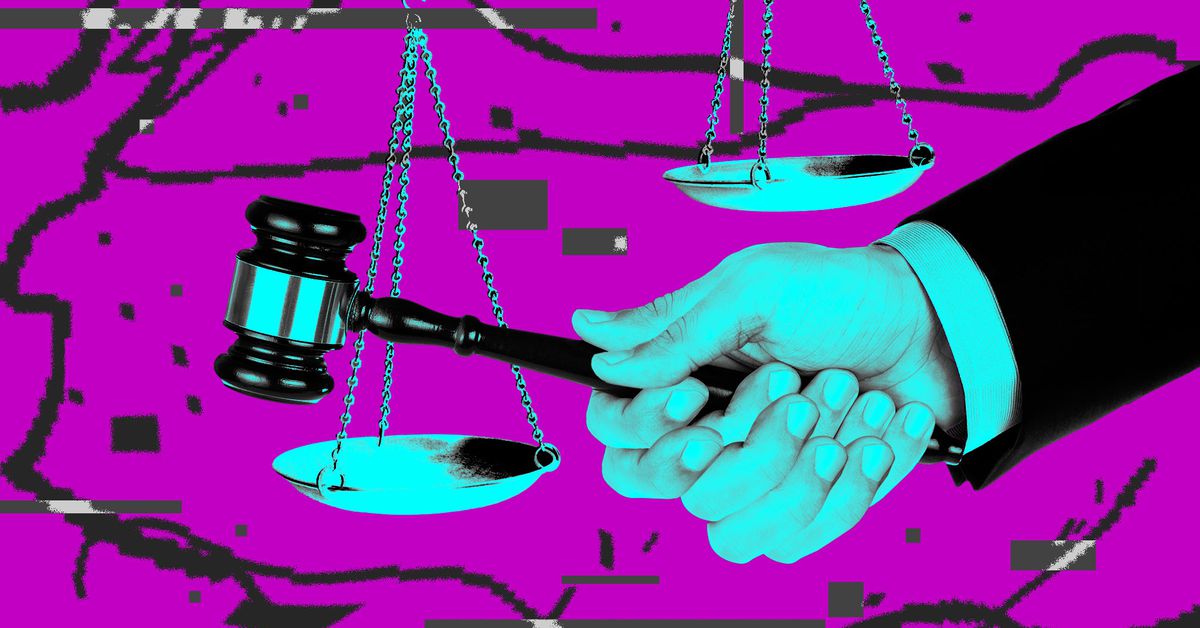A bipartisan group of senators introduced a new bill to make it easier to authenticate and detect artificial intelligence-generated content and protect journalists and artists from having their work gobbled up by AI models without their permission.
The Content Origin Protection and Integrity from Edited and Deepfaked Media Act (COPIED Act) would direct the National Institute of Standards and Technology (NIST) to create standards and guidelines that help prove the origin of content and detect synthetic content, like through watermarking. It also directs the agency to create security measures to prevent tampering and requires AI tools for creative or journalistic content to let users attach information about their origin and prohibit that information from being removed. Under the bill, such content also could not be used to train AI models.
Content owners, including broadcasters, artists, and newspapers, could sue companies they believe used their materials without permission or tampered with authentication markers. State attorneys general and the Federal Trade Commission could also enforce the bill, which its backers say prohibits anyone from “removing, disabling, or tampering with content provenance information” outside of an exception for some security research purposes.
(A copy of the bill is in he article, here is the important part imo:
Prohibits the use of “covered content” (digital representations of copyrighted works) with content provenance to either train an AI- /algorithm-based system or create synthetic content without the express, informed consent and adherence to the terms of use of such content, including compensation)



Just because intellectual property laws currently can be exploited doesnt mean there is no place for it at all.
That’s an opinion you can have, but I can just as well hold mine, which is that restricting any form of copying is unnatural and harmful to society.
Do you believe noone should be able to charge money for their art?
That’s right. They can put their art up for sale, but if someone wants to take a free copy nothing should be able to stop them.
That effectively makes all art free. At best its donation based.
Yes, that would be best.
That would lead to most art being produced by people who are wealthy enough to afford to produce it for free, wouldn’t it?
What incentive would a working person have to work on becoming an artist? Its not like artists are decided at birth or something.
Most people who make art don’t make any money from it. Some make a little bit of money. A small number of people can afford a living just by making art, and just a fraction of that actually get most of the money that’s being earned by artists, and then of course there is a lot of money that’s being paid for art that never reaches the artist. The business as it is is not working very well for anyone except for some big media companies. The complete lack of commercial success hasn’t stopped a lot of artists, it won’t stop them in the future. Thank god, because it wouldn’t be the first time that after decades of no commercial success whatsoever such an outsider is discovered by the masses. Sure, lack of commercial success has stopped others, but that’s happening now just as it will happen without copyright laws. If donating to artists out of free will would be the norm, and people knew that that’s the main source of income for certain types of artists, then I’m sure a lot of people would do so. And aside from private donations there could be governments and all sorts of institutions financing art. And if someone still can’t make a living, then still none of that could legitimize copyright in my view. We should strive for a world where everyone that wants to follow up on their creative impulses has time and opportunity to do so, irrespective of their commercial success. But there should also be unrestricted access to knowledge, ideas, art, etc. Brilliant research, photography or music shouldn’t be reserved for those who can afford access. The public domain should be the norm so that our shared project of human creativity can reach maximum potential. Copyright seems to me to be a rather bizarre level of control over the freedom of others. It’s making something public for others to see, but then telling these people you’re not allowed to be inspired by it, you can’t take a free copy to show others, you can’t take the idea and do with it as you please. It’s severely limiting us culturally, it’s harming human creativity. And at the same time it’s hypocritical. Artistic ideas are often completely based of the ideas of others, everyone can see that the output is the result of a collective effort. The Beatles didn’t invent pop music, they just made some songs, precisely copying all that came before them, and then added a tiny bit of their own. And that’s not a criticism, that’s how human creativity functions. That’s what people should strive for. To limit copying, is to limit humanity in it’s core. Again, human creativity is very clearly a collective effort. But despite this fact, when someone gets successful suddenly it’s a personal achievement and they are allowed to ask for a lot of money for it. Well my answer is, yes they are allowed to ask, and I am very willing to pay, but they shouldn’t be allowed to go beyond asking, they shouldn’t be allowed to restrict access of something that has been published.
True but you people have had hundreds of years to fix the system and have not.